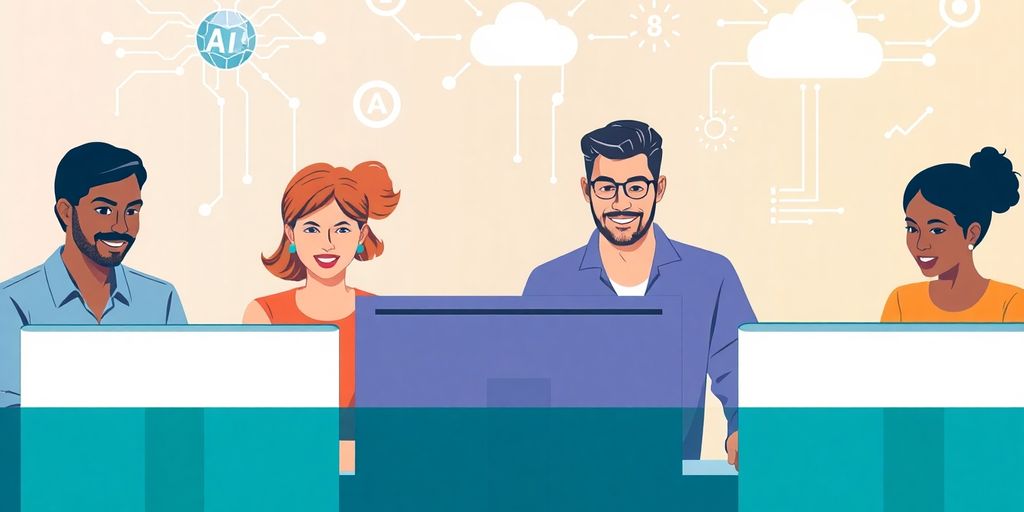In a bold move to reshape the future of artificial intelligence, Microsoft has announced its commitment to promoting open-source technology that enables AI agents to interact seamlessly. This initiative, highlighted by Microsoft’s Chief Technology Officer Kevin Scott, aims to create an interconnected ecosystem of AI systems, referred to as an "agentic web." This vision was unveiled ahead of the company’s annual Build conference, signaling a significant shift towards collaborative AI development.
Key Takeaways
- Microsoft advocates for an open-source standard called the Model Context Protocol (MCP).
- MCP aims to facilitate collaboration among AI agents from different companies.
- The initiative is inspired by the success of hypertext protocols in the 1990s.
- AI agents can perform specific tasks autonomously, enhancing efficiency in various sectors.
- Concerns about the potential risks of autonomous AI interactions are being addressed.
The Vision of an Agentic Web
Microsoft’s vision for an agentic web is rooted in the belief that diverse AI systems can work together harmoniously. By leveraging the Model Context Protocol (MCP), developed by the AI company Anthropic, Microsoft hopes to create a standard that allows AI agents to share data and learn from one another. This collaborative approach is expected to enhance the performance of AI agents, making them more effective in their designated tasks.
Understanding AI Agents
AI agents are specialized systems designed to perform specific functions, such as debugging code or providing customer support. They operate autonomously, analyzing data and making decisions based on their training. The potential applications for agentic AI are vast, ranging from cybersecurity to personalized customer service.
The Role of Reinforcement Learning
A critical aspect of improving AI agents’ performance is reinforcement learning, a technique that uses rewards and penalties to shape behavior. By allowing AI agents to share their experiences and outcomes, the MCP could significantly enhance the learning process, leading to more accurate and efficient AI systems.
Addressing Potential Risks
While the benefits of an interconnected network of AI agents are promising, concerns about the implications of such technology remain. Questions arise regarding the potential for negative feedback loops if agents are left to operate independently. Microsoft acknowledges these challenges and emphasizes the need for robust mechanisms to ensure that the agentic web operates positively and constructively.
The Future of AI Interaction
As Microsoft pushes forward with its open-source initiative, the landscape of AI interaction is poised for transformation. The integration of AI agents into critical services, such as banking and emergency response, could become commonplace within the next decade. This shift raises important questions about the balance between automation and human oversight, as well as the ethical implications of relying on AI for decision-making.
In conclusion, Microsoft’s promotion of open-source technology for AI interaction marks a significant step towards a future where AI systems collaborate effectively. As the company works to establish the Model Context Protocol, the tech community watches closely, eager to see how this initiative will shape the development and deployment of AI technologies in the years to come.
Sources

Founder Dinis Guarda
IntelligentHQ Your New Business Network.
IntelligentHQ is a Business network and an expert source for finance, capital markets and intelligence for thousands of global business professionals, startups, and companies.
We exist at the point of intersection between technology, social media, finance and innovation.
IntelligentHQ leverages innovation and scale of social digital technology, analytics, news, and distribution to create an unparalleled, full digital medium and social business networks spectrum.
IntelligentHQ is working hard, to become a trusted, and indispensable source of business news and analytics, within financial services and its associated supply chains and ecosystems











